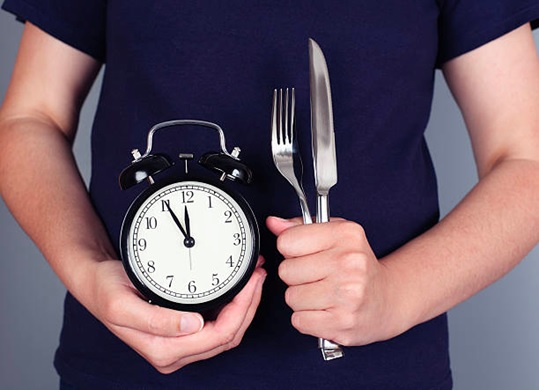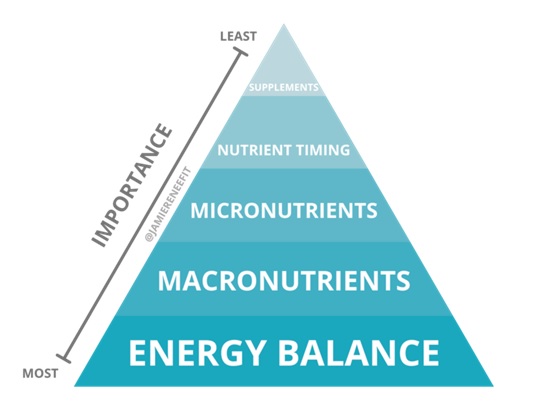
They say timing is everything but when it comes to body fat, does it matter when we eat? Chrononutrition is an emerging field in nutritional science that studies the effects of meal timing on health. Some advocate its importance, saying that the time you eat meals significantly impacts your metabolism. Others argue that overall caloric intake is more important than when you choose to have your food. So what should we believe? Read below to find out about chrononutrition and whether you’re better off eating the majority of your calories earlier in the day.
What Is Chrononutrition?
The idea that the time you eat is just as important as what you eat is called “chrononutrition”. This field of nutritional science is very new. Some research suggests that eating at the wrong time for you could affect metabolism. You have likely heard people say that eating late night meals is not ideal for fat loss or that breakfast is the most important meal of the day. Chrononutrition is the study of whether these ideas have any merit. Due to the fact that this area of study is relatively new, there is a lot of conflicting research that needs to be investigated further. Some studies show that leaner people tend to eat more of their calories at breakfast time. Whereas others have found that the time you eat makes very little difference to your weight. Although there is very convincing research that shows your body can digest food differently depending on time of day, most of us should be focussed on what we are eating rather than when.

Does Eating Late Result In Weight Gain?
It is a popular myth that eating right before bed is detrimental for fat loss. This is based on epidemiological research that concluded those who eat late burn less calories digesting food and are more likely to have a higher BMI. Although a few studies have had similar findings, it is important to remember correlation doesn't equal causation. Potentially the late night eaters have higher BMIs because they were eating higher calorie foods, exercising less and getting insufficient sleep. There are so many factors at play that it would be naive to say eating late is the sole cause of weight gain. Yes, if you are eating massive portions of junk foods in bed and doing minimal exercise, you will likely be a bit chubbier than the average Joe. However, if you stay active throughout the day and train, there is no reason why you can’t have a big dinner and maintain a lean body mass. Overall calorie consumption is the biggest determinant of bodyweight.

Who Should Worry About Meal Timing?
Some of us should be more concerned with meal timing than others. Members of the general population can get away with a less thorough approach to nutrition. It’s a different story for athletes or those with more specific goals. These populations could benefit from intelligently planning their calories before and after workouts. The first thing you need to do is determine your goals. Are you trying to optimise nutrition or just nail the basics? A six year cohort study found that the frequency of large meals eaten has more of an influence on body fat than meal timing. If losing weight is your primary goal, don’t get lost in the weeds worrying about how late you eat. Calorie intake should be your main concern. However, if you are already nailing your calorie and macronutrient intake, then timing could be the next area to address. Some studies show that those who eat breakfast experience reduced hunger throughout the day. This is called ‘frontloading your calories’. However, as stated above, the research is conflicting. There are just as many studies that say skipping breakfast helps you lose weight. As you can see in the pyramid photo, there is a hierarchy of things to worry about when it comes to fat loss. If you haven’t addressed your calories and macronutrient intake, there is no point worrying about what time you have breakfast.

Conclusion
The best answer to whether meal timing matters is “it depends”. For some people, changing up when they eat could make a huge difference to how they feel. Others will have more pressing considerations that should be prioritised first. Each individual is affected by a myriad of factors so unfortunately, there is no one size fits all approach. Sometimes life gets in the way of optimal nutrition and that’s okay. If you love a big meal at night, you can make one fit into your daily calorie requirements without putting on body fat. On the other hand, if you’d prefer to eat breakfast like a king and dinner like a pauper, that works too. For the average person, meal timing isn’t something they need to lose sleep over. So if you want to enjoy an NZProtein mug cake right before bed, go hard. It won’t make a big difference to your body fat.
